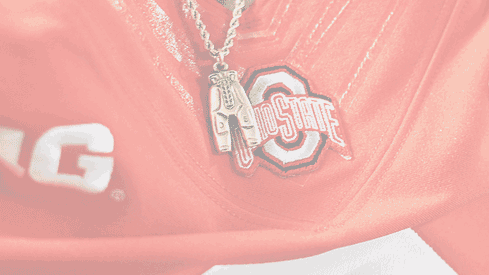OK, I admit it: I’m a retired attorney who’s a film buff and (a Jack Nicholson fan as well)—and that’s one of my all-time favorite movie scenes. Terrific writing, great acting: what more could you ask for?
Well, what I could ask for right now is an acknowledgment by all of us—fans, top administrators in the athletic departments, university presidents, among others—that there are some “ugly” truths that are being, in essence, swept under the rug in the analysis of whether football should be played this fall.
For starters, college football players at big-time programs are not student-athletes. They are athlete-students. Actually, to be more accurate, they are semi-professional athlete-students.
To get a clear sense of this, you should read John U. Bacon’s recent book, “Overtime,” which provides the most detailed look I have ever seen of what is required in terms of time and energy at a major football program (and this is at Michigan, where academics are purportedly valued).
I played a varsity sport—soccer—decades ago at an Ivy League school and, trust me, there is no comparison whatsoever between the demands I had to face as a student-athlete and those today’s football players have to deal with throughout the year.
These football players absolutely deserve to get paid; and they do right now, on some level, in the form of an athletic scholarship (which is a significant amount of compensation). But, from my perspective, they deserve to be paid more. They are not amateur athletes in even the remotest sense that I was decades ago.
A second ugly truth: while the close contact in football absolutely increases the risks of getting Covid-19 and thus being subjected to the dangers of this virus, there are already major health risks in playing football which all of us—including the players and their parents—seem to either overlook or accept and, as a result, football games up until this point have continued to be played year in, year out.
CTE is a real risk. Yet, as of now, no university presidents have at any of the big-time football programs looked to shut down their football teams.
In addition to that, anyone who is older who has played the game or who is friends with older one-time football players knows how many of them have had to cope with pain and/or operations such as joint replacements and back surgery—all stemming from their playing days of long ago.
A friend of mine who played both high school and college football—and who’s part of the one of the leading football families in my hometown—has suffered through debilitating back pain that surgery did not cure. Notwithstanding his family’s love of football, he said that if he had to do it all over again he would have played another sport.
So, let’s make no mistake: in allowing athlete-students to play big-time college football, university presidents are already permitting these individuals to be subjected to all sorts of serious health risks, including way-too-early deaths related to CTE.
Ah, but an argument can be made that there is a distinction: the athlete-students who play college football can’t expose the rest of the student body to these types of health risks as they can with Covid-19—and that is really what has caused concern for some of the university presidents.
That’s a fair point. But the answer to that is: put the football players in a bubble with no contact with the rest of the student body—meaning they will take all of their classes remotely (similar to what a number of other students have done and/or are currently doing)—and have the football team compete against other schools that are willing to abide by a similar bubble policy.
Bubbles work well as already demonstrated by professional sports leagues.
Oh, but how can we have members of the college football be treated like pro athletes? Does that really deserve an answer?
The bottom line: members of big-time college football programs are in reality semi-professional athlete-students who are already treated differently than the rest of the student body in so many ways; and, before Covid-19, they faced significant health risks in playing the game I assume they love.
Is it really a giant leap to set up a bubble to allow them to cope with the newest health risk?—that is, of course, if they wish to subject themselves to the possibility of getting the virus. If any players wish to opt out, of course they should be permitted to with the right to retain their full scholarship and an extra year of eligibility.
Finally, if schools such as Ohio State wish to set up such a bubble, the B1G should not in any way be able to deny the Buckeyes that opportunity. It would seem to me that there is a role for BTN in this scenario as they, in essence, pay some of the bills for conference athletic programs and they have a contract for programming to be provided by the conference. If Ohio State is willing to offer games that would provide programming, BTN would seemingly have a major stake in the discussion as well.
